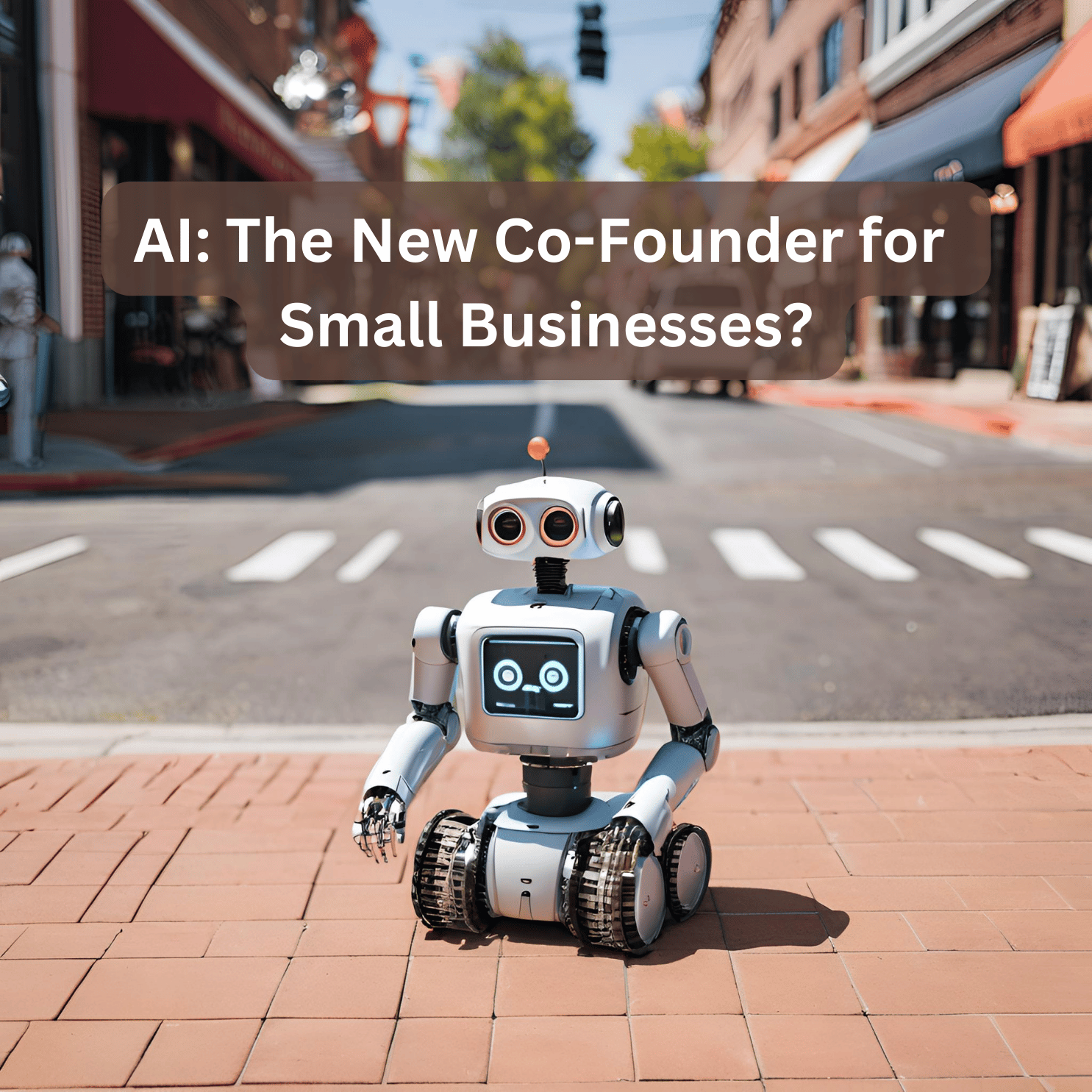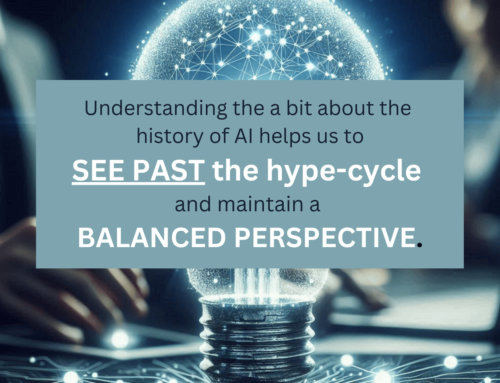In today’s rapidly evolving business landscape, AI is emerging as a powerful tool for small businesses. A recent New York Times article, “How A.I. Can Help Start Small Businesses“, shed light on how generative AI is empowering entrepreneurs to launch and scale their ventures with unprecedented speed and efficiency. I was particularly intrigued by the stories of individuals like Steven Bright, who leveraged ChatGPT to navigate the complexities of starting his company, Skittenz. But overall, having grown up with both my parents being small business owners, the article’s core message resonated with me – AI has the potential to be a game-changer for small businesses seeking to leverage the power of this technology.
While the potential benefits are undeniable, it’s also important to approach AI adoption with a balanced perspective. At the end of the day, for AI to be useful, it has to be a helpful enabler and accelerator for small businesses, not a time killer or distracting rabbit hole that they can get lost in. So let’s dive deeper into the article’s key takeaways and explore some of the nuances and considerations for small business leaders navigating the AI landscape.
Key Takeaways from the Article
- Accelerated Progress: Sean Ammirati, a professor at Carnegie Mellon University, observed a significant increase in the speed and quality of his students’ entrepreneurial projects when they incorporated generative AI into their workflow.
- “Stilts to Get Through an Obstacle”: Steven Bright, founder of Skittenz, aptly describes AI as providing a boost to overcome challenges and move faster towards business goals.
- Increased Confidence: Access to AI tools gave entrepreneurs like Mr. Bright the confidence to launch their ventures without relying heavily on expensive external expertise.
- Potential for Faster Profitability and Scale: Research suggests that AI adoption can help businesses reach profitability and scale more quickly.
- “Bootstrapping Technology”: Professor Erik Noyes from Babson College highlights AI’s ability to help entrepreneurs “do more with less.”
My Take
The examples showcased in the article certainly demonstrate the transformative power of AI for small businesses. The ability to leverage AI for tasks like coding, marketing, customer service, and even legal document review can significantly level the playing field for entrepreneurs. However, it’s important to acknowledge that AI is not a magic bullet. While it can automate tasks and provide valuable insights, it’s crucial to remember that AI is still just a tool, not a replacement for human ingenuity and strategic thinking. If the tool doesn’t do the job, distracts, takes too much time, etc., then the tool is not helpful and not actually accelerating anything.
I recommend that small business leaders need to approach AI adoption with a clear understanding of their goals and challenges. Whether a large company or a small business, this is always the most critical step – identifying where and how AI can help you achieve your business goals in a more effective way. It’s essential to identify specific use cases where AI can add the most value. And if and when you have identified how it can help achieve your business goals and you have specific use cases where it can add value, then it is worthwhile to invest in the necessary training and infrastructure to implement and manage AI solutions effectively.
Food for Thought: Examples of AI in Small Businesses
Beyond the examples highlighted in the article, there are countless other ways small businesses are leveraging AI to gain a competitive edge. Here are just a few.
-
AI-Powered Customer Service:
In a report on AI’s economic potential, McKinsey & Co. estimated that applying AI to customer care functions can increase productivity somewhere between 30-45%. For small business, any tool that enhanced customer support would be a huge win! Just think of how AI-powered chatbots are revolutionizing customer service. Implementing them in a small business could help them to “punch above their weight” (so to speak), allowing them to provide 24/7 support and personalized interactions, leading to increased customer satisfaction and reduced support costs.
-
AI-Driven Marketing:
Small business owners and entrepreneurs can often be a marketing team of one. So, AI-driven marketing tools enable small businesses to target their ideal customers with precision, maximizing their marketing ROI and improving customer engagement.
-
AI-Powered Analytics:
Mining large (or even small) amounts of data can be challenging. AI-powered analytics platforms can help small businesses (and their leaders) do the kind of analysis that they do not have time to do and gain valuable insights from their data, which can inform strategic decision-making and help drive business growth.
-
AI in Finance & Operations:
Invoicing, streamlining inventory management, and even predicting future sales trends – these are all areas that, once again, can save small business leaders time, lead to increased efficiency, and generate cost savings.
Actionable Tips for Small Business Leaders Regarding AI
- Start Small: Identify one or two specific areas where you think AI can make an immediate impact on your business.
- Do Your Research: Explore the various AI tools and platforms available and choose those that best align with your business needs and budget.
- Invest in Training: Ensure your team has the necessary skills and knowledge to leverage AI effectively.
- Measure Your Results: Track the impact of your AI initiatives and make data-driven adjustments to optimize your strategy.
- Embrace a Learning Mindset: AI is a rapidly evolving field. Stay curious, experiment, and be willing to adapt your approach as new technologies emerge.
Overall…
The New York Times article provides a compelling glimpse into the potential of AI to transform the small business landscape. While there are certainly challenges and considerations to navigate, the opportunities for growth and innovation are immense. I encourage small business leaders to embrace this technology and explore its potential to drive their businesses forward.
Remember, AI is not just a tool for large corporations. AI can be a powerful ally for entrepreneurs and small businesses seeking to compete and thrive in the digital age.








